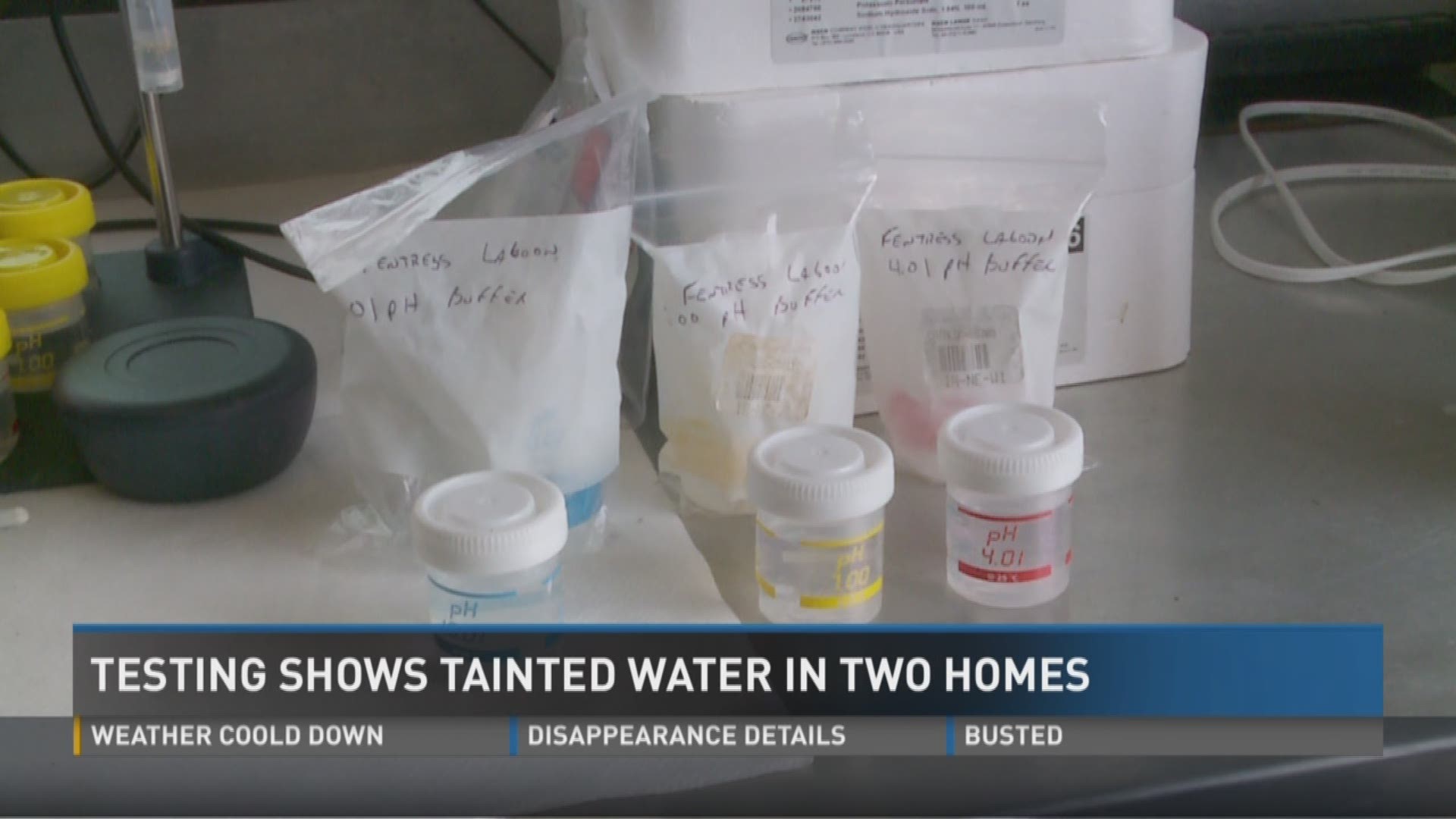CHESAPEAKE, Va. (WVEC) -- The Navy is giving bottled water to its personnel at the Naval Auxiliary Landing Field Fentress in Chesapeake and is testing wells in a nearby rural area after the discovery of perfluorinated chemicals in drinking water, which the federal Agency for Toxic Substances and Disease Registry says may be associated with prostate, kidney and testicular cancer, along with other health issues.
A total of 52 private off-base drinking water samples were collected from Feb. 3 through Feb. 13, 2016 after Perfluorinated Compounds were found in drinking water from base wells in January.
Preliminary results received by the Navy showed two of the 52 wells near Fentress have levels above the U.S. Environmental Protection Agency provisional health advisory for PFCs.
"The well-being of our people on Fentress and our City of Chesapeake neighbors is a top priority for the Navy," said Capt. Lou Schager, Commanding Officer of Naval Air Station Oceana and Fentress. "Equally important, is keeping the community and our partners up-to-date and informed of where we are in the process and the next steps," Schager said.
The military plans to examine hundreds of sites nationwide to determine whether chemicals from foam used to fight fires have contaminated groundwater and spread to drinking water, the Defense Department said.
The checks are planned for 664 sites where the military has conducted fire or crash training, military officials told The Associated Press this week.
Since December, tests have been carried out at 28 naval sites in mostly coastal areas. Drinking water at a landing field in Virginia and the groundwater at another site in New Jersey have been found to contain levels above the guidance given by the federal Environmental Protection Agency, the Navy said. Results of the other tests have either come up under federally acceptable levels or are pending.
The Navy started testing drinking water for PFCs in December at installations, including Fentress, where firefighting foam that contained PFCs was once used for training. The firefighting foam is no longer used for training.
The Navy is considering which methods are best to use for a long-term solution.
PFCs are unregulated or "emerging contaminants" that have no Safe Drinking Water Act regulatory standards. The EPA, however, has established provisional health advisory levels for two PFCs: Perfluorooctane Sulfonate (PFOS) and Perfluorooctanoic Acid. The EPA recommends that actions be taken to reduce exposure if drinking water contains PFC concentrations above the provisional health advisory levels.
U.S. Senators Mark Warner and Tim Kaine pressed Secretary of the Navy Ray Mabus to swiftly address the issue and ensure the immediate needs of local community members are met.
Read the letter below:
We write to request information on recent lab results indicating elevated levels of perfluorinated compounds (PFCs) in the drinking water on and around Naval Air Landing Facility (NALF) Fentress in Chesapeake, VA. As you are aware, PFCs are considered to be emerging contaminants, and while there are no Safe Drinking Water Act regulatory standards for these compounds, there are Provisional Health Advisory values for health-based screening levels.
In order to best provide congressional oversight and support to the NALF Fentress community, we request a detailed briefing on your current lab reports and additional testing planned, which should include health assessments of servicemembers and members of the community. We appreciate the Navy’s proactive efforts to evaluate facilities for this emergent contaminant, promptly notify the local community and deliver bottled water to areas that may have been impacted.
American naval strength and force projection rely on the unwavering support of our servicemembers, their families and surrounding communities. Foundational to this support is our moral obligation to ensure their health and welfare. We look forward to working with the Department to swiftly resolve this matter.
U.S. Senator Mark WarnerU.S. Senator Tim Kaine

